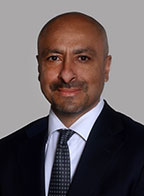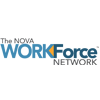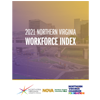We are fortunate to have assembled a stellar group of experts for our upcoming Annual State of Healthcare in the Region event on May 4th. During the event, these leaders will cover a diverse set of region-related topics that impact your business, but we wanted to ask them ahead of time:
"What should businesses be doing now to prepare for the next big challenge in healthcare?"

“It’s essential for companies to foster a culture of health and well-being among employees and clients. Listening to understand what’s most important to them is fundamental to business success.”
Dr. Christina Stasiuk, MD, Market Medical Executive – Mid-Atlantic Region, Cigna
 “I would recommend businesses be sure their employees understand how best to access their healthcare and stay current on preventive care, because this would help their employees to be positioned best to withstand and navigate future healthcare challenges.”
“I would recommend businesses be sure their employees understand how best to access their healthcare and stay current on preventive care, because this would help their employees to be positioned best to withstand and navigate future healthcare challenges.”
Dr. Shankar Sridhara, MD, Head and Neck Surgery, Kaiser Permanente

“Businesses need to dive deeper into the communities where employees live, work and play to find out: What are their demographics and experiences? What are their needs? With the answers to these questions in mind, businesses can make equitable decisions to create meaningful change in their communities. Invest in their future, and yours, by partnering with local health organizations to impact the affordability, quality and ability to access healthcare.”
Dr. Djinge Lindsay, MD, MPH, Director of Public Health, CareFirst BlueCross BlueShield
 "The COVID-19 pandemic impacted everyone, regardless of industry and put public health at the forefront of organizational plans and awareness. While it did not create disparities and structural inequities in our country, it did shine a light on them and presented a clear vision of the need for change. It also prioritized the need for more data to support data-driven decision-making now and for future health crises.
"The COVID-19 pandemic impacted everyone, regardless of industry and put public health at the forefront of organizational plans and awareness. While it did not create disparities and structural inequities in our country, it did shine a light on them and presented a clear vision of the need for change. It also prioritized the need for more data to support data-driven decision-making now and for future health crises.
Having data that accurately represents all populations and their experiences to drive equitable decisions is necessary to strengthen population health monitoring and analysis of population health data. The healthcare industry needs more REL data, but employers also need to leverage data to understand health disparities within their workforce and use those insights to build tools/supports that promote equitable outcomes (or promote equity).
We know that 80% of a person's health occurs by factors outside of clinical care. To truly move the needle in health outcomes or the next big challenge in healthcare, employers must understand social determinants of health (SDOH) and their ability to influence and make a difference in their employees' health and wellness. This includes everything from benefit design to having a representative workforce generated with diversity, equity and inclusion in mind.
Businesses need to dive deeper into the communities where employees live, work and play to find out: What are their demographics and experiences? What are their needs? With the answers to these questions in mind, businesses can make equitable decisions to create meaningful change in their communities. Invest in their future, and yours, by partnering with local health organizations to impact the affordability, quality and ability to access healthcare.
Simply put, you do not need to be an employer, leader, or employee associated with the healthcare industry to lead the future of healthcare. Everyone plays a part in preparing for the next big healthcare challenge."
Dr. Steve Narang MD, MHCM, President, Inova Fairfax Medical Campus, President, Pediatric Service Line

















